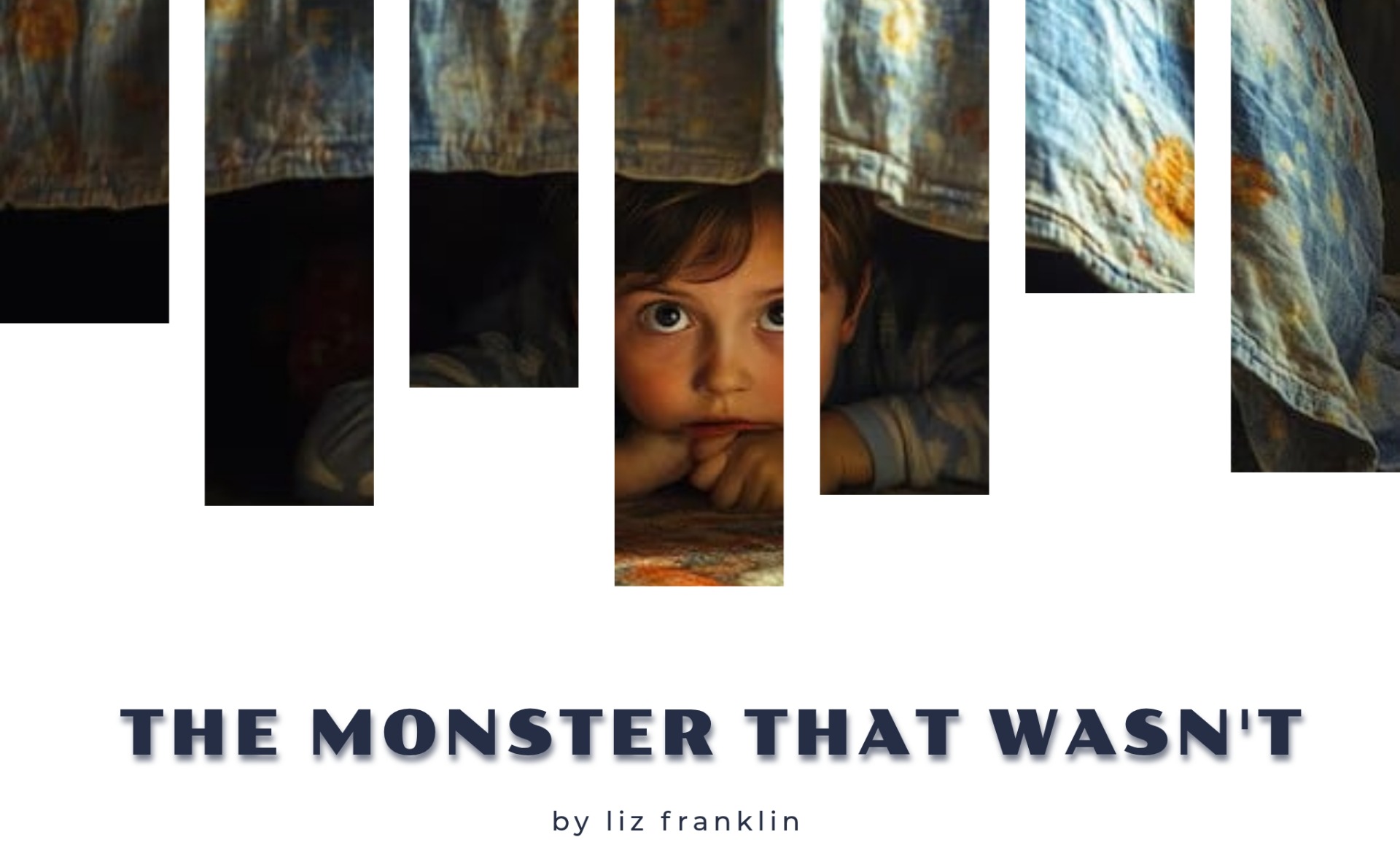
This haunting story, told through the eyes of a child's tortured soul, will echo in you long after the final page. It lays bare the ripple effects of wrongful suspicion and the painful cracks in a justice system too quick to condemn. The raw ache of a mother's innocence is overshadowed by a community desperate for someone to blame. Gripping and deeply unsettling, this unforgettable tale will make you question your faith in our legal system. Its chilling images will leave an indelible impression—just don't forget to breathe.
One night, as I slept in the new bed that had replaced my crib, a noise woke me. Before I could even cry out to alert my mom, something—someone—ripped my soul from my body. It was violent. Sudden. And then it was over. Or so I thought.
I watched from the ether as my mom entered my room the next morning, only to find the worst nightmare she could ever imagine. I witnessed her shock, trauma, pain. I listened as she called 9-1-1 with desperation and fear, a level of panic my innocence could never have imagined.
I watched as the crime scene investigators arrived, determined to figure out exactly what had happened. But in the end, to no avail. I saw loving friends and neighbors leave flowers and tiny stuffed bears outside our house, while tying pretty ribbons to their trees. I saw the outpouring of love at the candlelight vigil. As time passed, they buried my tiny body, and life seemed to grind on.
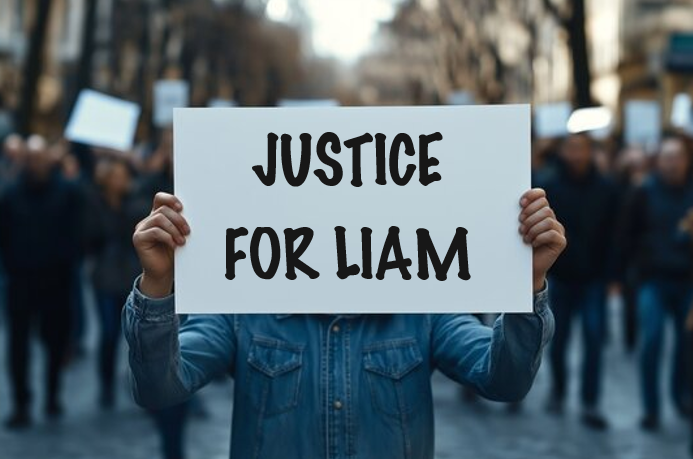
I witnessed the outrage of the community, desperate to find the person capable of doing such a depraved thing. But investigators had nothing—no clues, no suspects.
Then one day, I noticed the mood shifting. I couldn't have known then that a statement that started so softly would one day grow into a deafening, heartbreaking roar. That whisper—the one that insinuated since my mom was the only one in proximity to me, she must have done it—would soon be set in stone.
The longer the case went unsolved, the more certain they became that my mother had done something unspeakable. It was as if everyone needed a villain, and if the police couldn't find the real one, they'd make do with whoever was left standing.
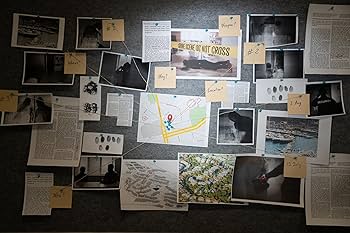
I could see them building a story out of half-truths and guesses, stacking mistakes on top of misunderstandings. Each new theory was like a brick laid in a wall that kept the truth out and let suspicion grow.
They sifted through everything my mom ever did, turning her life upside down like they were shaking secrets out of a box. When they found an email where she'd vented to a friend about being exhausted, about wishing—just for a moment—that she could have a break. Suddenly, that fleeting confession wasn't just exhaustion. It was motive. Proof, in their eyes, she wanted me gone.
They found out about the new man she was seeing, and even though they didn't know a thing about him, they speculated that maybe he wasn't ready for a child in his life. Maybe, they hinted, she did the unthinkable to hold on to him. They didn't care that he'd brought me little stuffed animals or read me bedtime stories that made me giggle. The truth didn't matter; only the story they were inventing out of thin air.
Every forgotten chore, every tired sigh, every normal mistake—twisted until it looked like a clue. The more they dug, the less they saw her as my mom. To them, she was just a collection of flaws, a pile of bad decisions, and each one of them, according to them, pointed to guilt. I wanted to scream that she was just human. That she loved me more than her own life. But in their eyes, being human was a gold mine of evidence.
I wanted to reach down, to tug on a sleeve or whisper in an ear: "You're wrong. You're missing it." But I was just a chill on the back of a detective's neck that he shrugged off. The more I tried to make them see, the more invisible I became. I was everywhere and nowhere, forced to watch my mother break under the weight of their mistakes.
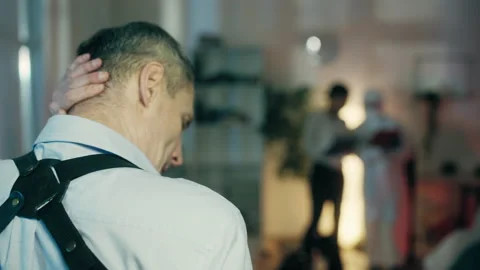
They said her reactions weren't normal. She didn't break down at my funeral, didn't sob in front of the cameras or collapse in the arms of strangers like they thought she should.
The Cost of Imperfection

They didn't see the late-night lullabies or the way she'd let me nap on her chest, even when it meant she barely slept. They didn't see her racing home from work just to catch a few extra minutes with me before bedtime. All they saw were the imperfections—the bills, the new relationship, the forgotten appointments—as if being overwhelmed and imperfect was the same as being a methodical, calculated, heinous killer.
I watched them pick apart her life until all that remained was a version of her I no longer recognized. The love she poured into me—every sacrifice, every soft word—meant nothing once their story took hold.

They said her reactions weren't normal. She didn't break down at my funeral, didn't sob in front of the cameras or collapse in the arms of strangers like they thought she should. They didn't see how she drifted through those days in a fog so thick she could barely dress herself, how her doctor had no choice but to prescribe medication meant to help her keep breathing when every instinct told her to stop. But not only did the medicine dull her pain, it also robbed her of the tears they seemed to expect.
To them, numbness looked like guilt. Every quiet moment, every blank stare, every time she couldn't muster the right words—all of it fed their narrative. They wanted wailing, a public spectacle of grief, something they could point to and say, "See? That's a mother's love." When she couldn't give them that, they decided she must not have loved me at all.
Somehow, I felt like even if she had been a complete mess every time the cameras clicked, fell to pieces like they thought she should, they would have used that against her, saying it was the actions of someone who couldn't cope with what they had done or that she was faking it to cover her guilt.
At this point, it didn't matter what she did. If she screamed and sobbed, they would have said she was hysterical, unstable, maybe even pretending. If she stayed quiet, they'd call her cold. There was no way to grieve that wouldn't have become another weapon to use against her. They were never really looking for the truth—just for something that made sense to them, something that let them sleep at night.
I watched as my mother's friends and family filed into quiet rooms, led by detectives with gentle smiles. They said things like, "Just between us," and "We already know most of what happened." They asked the same questions over and over. Sometimes they suggested things—things I knew weren't true—just to see what people would say. They told Aunt Lisa that my mother had confessed already. They told the neighbor that someone had seen her in my room that night, that there was "proof." None of it was true.
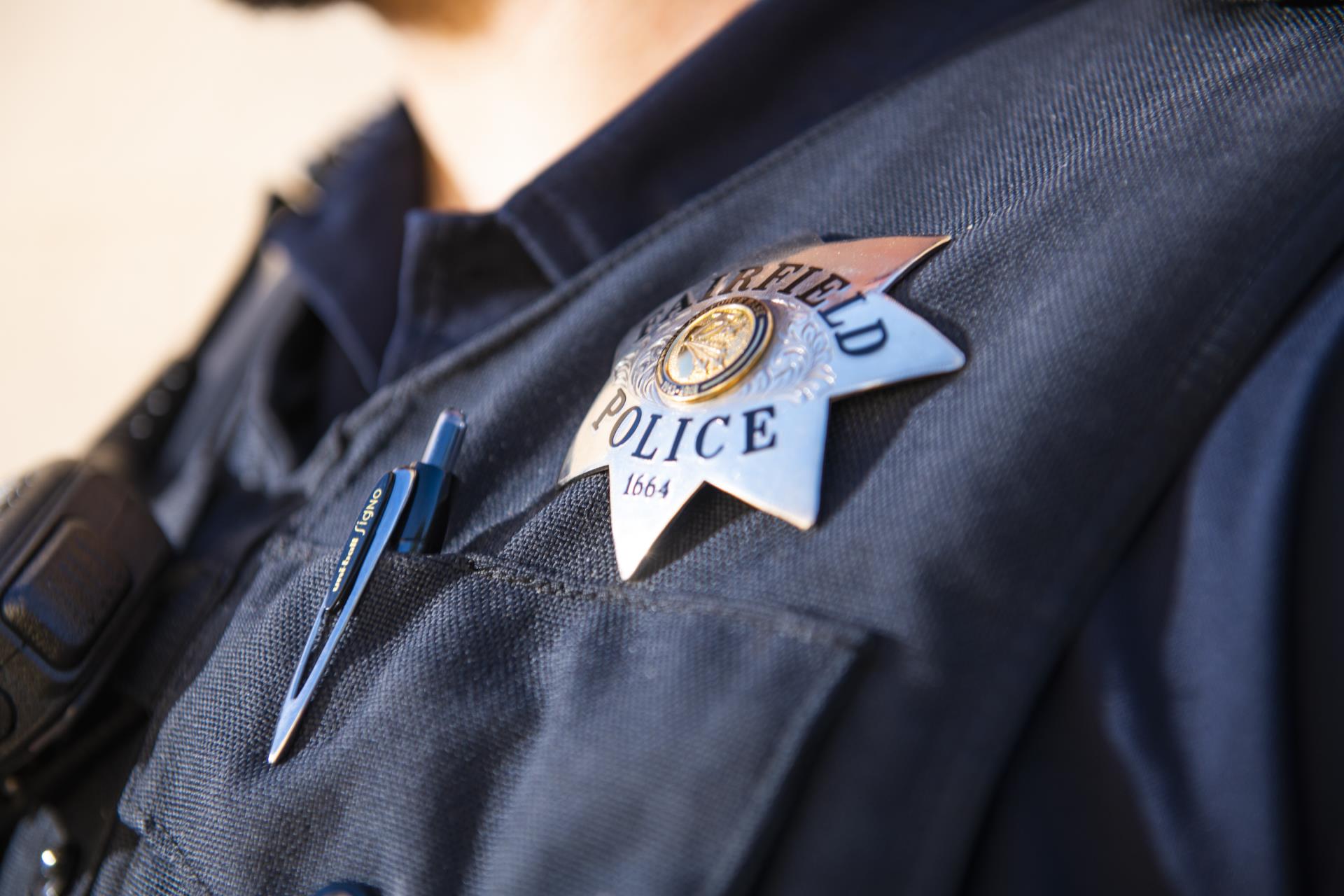
But they believed them because the police wouldn't lie. Still, the bell was rung. So the people who once hugged my mother tight, now looked at her with suspicion, their words growing colder, their visits less frequent. The worst part wasn't that the world turned on her—it was that the people she loved most took the side of strangers, just because those strangers wore badges. That betrayal hurt her in ways I could feel, even in my Heavenly state.
I watched as cameras clustered outside our house, their lenses like a hundred accusing eyes. Reporters spoke in somber tones, but their words were like knives. They dug through old photos and found the ones where my mother looked tired, or sad, or anything but perfect, and those became the face of evil on every screen. They read the police's theories as fact, repeating the same phrases until even strangers on the street were sure she was guilty.
But I remembered everything. Every bedtime story, every whispered "I love you," every time she woke in the night just to make sure I was still breathing. None of it counted, not to them. They only saw what fit their version of the truth, and the rest—the love, the ache, the sleepless nights—didn't matter because that piece of the puzzle no longer fit the picture they'd created. It was as though they had lost the puzzle box, the one with the image on the front, and were now scrambling to invent a picture they could make a case with.
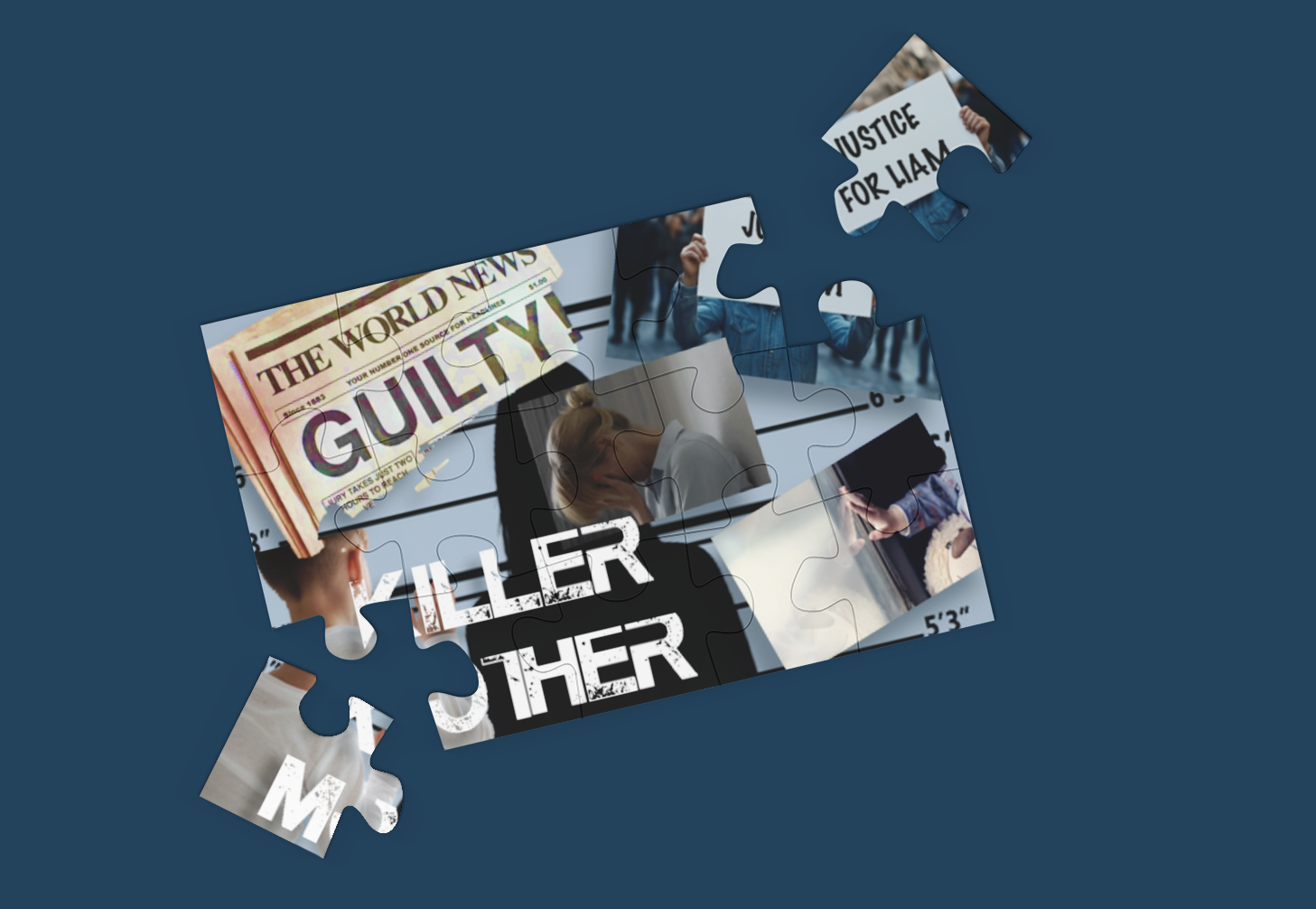
Her name used to mean warmth, bedtime stories, gentle hands. Now it meant coldness, evil plots, and hands capable of the most unspeakable of crimes. They didn't know her. But no one seemed to care about that—not when the story was this titillating and tantalizing. And when the story died down, they would even make up things to stir the media fire.
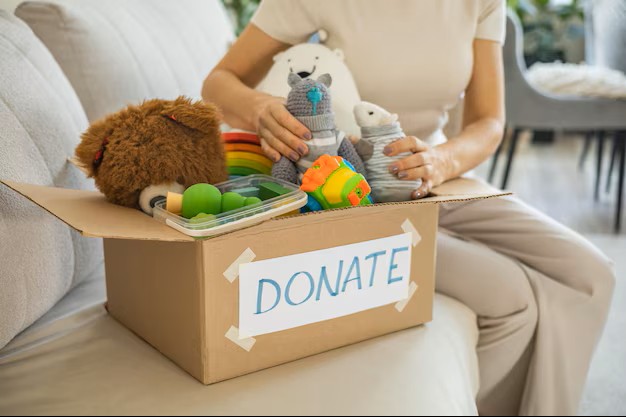
But I saw her, every moment. I saw the way her hands shook when she packed away my toys, how she pressed my blanket to her face like she could breathe me back to life. I saw the love they missed because they weren't looking for it. And I wished, with everything that was left of me, that someone—anyone—would stand up for her, would force the world to see the truth for what it was. But by then, it was already too late. No amount of truth could undo the damage or give her back the life they'd stolen from her, piece by piece.
On the day they came for her, it was gray and ordinary, the kind of day that would have faded into the background of memory if not for what it became. She was sitting in the kitchen, hands wrapped around a mug she'd forgotten to drink from, staring out the window at nothing. I hovered near her, closer than breath, wishing I could protect her from what was about to happen, the way she'd always protected me.
The knock at the door was sharp, official. She flinched, a lifetime of anxiety packed into a single gasp. I watched the officers on the porch exchange grim looks, their uniforms starched, their faces already set in judgment. When she opened the door, they didn't bother with kindness. They didn't see the woman who used to rock me to sleep, or the way her hands trembled as she tried to remember how to speak. They saw only the suspect they'd spent months building out of half-truths and shadows.
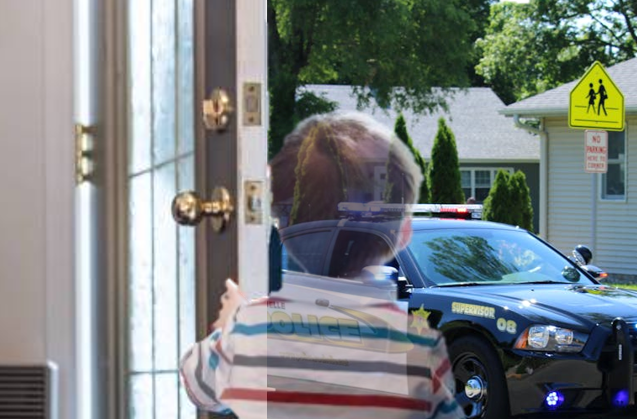
"Ma'am, you're under arrest for the murder of your child." Their words dropped into the room like a bomb, and the world shifted. She didn't react—she just went silent, the color draining from her face. I felt her heartbreak, a physical thing, like a scream that couldn't escape. The neighbors watched from their windows, some with hands over their mouths in disbelief, some with smug, judgmental faces, a validation that their suspicions had been right.
When she opened the door, they didn't bother with kindness. They didn't see the woman who used to rock me to sleep, or the way her hands trembled as she tried to remember how to speak. They saw only the suspect they'd spent months building out of half-truths and shadows.
The Skewing of Innocence
They didn't let her change out of her pajamas or even grab her cell phone. The cuffs clicked around her wrists, cold and final, and I saw her flinch at their touch, as if the metal had burned away the last of her hope that they would ever figure out what had truly happened to me that horrifying night.
As they led her away, I followed, invisible and frantic. I wanted to shout to the world that they were wrong, that the real monster was still out there. There was my mother, her head down in shame, as if she'd actually done something wrong. They paraded her past the cameras, past the whispers and the stares. And as she glanced back at the life that once existed, for a split second, I swear she saw me.
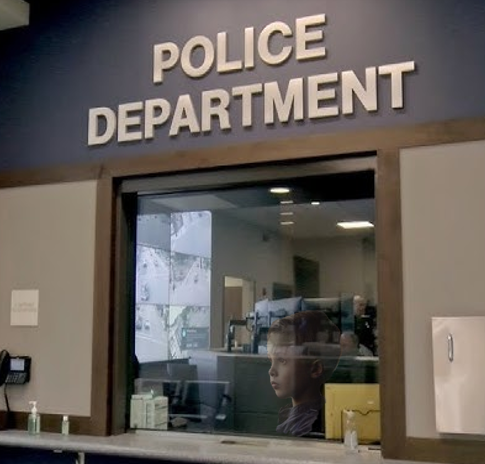
At the station, they stripped away her possessions—slippers, clothes, her favorite blue hair tie. And most of all, her dignity.
They put her in a windowless room, harsh lights buzzing overhead, and left her alone—confused and frightened—feeling as if she'd entered an evil parallel universe the moment the door slammed shut. I could hear her whisper, again and again, "What could I have done differently?"

Detectives came in one after another, each with a new folder, a new accusation, a new way of twisting her words. They spoke in circles, asking the same questions again and again until she could barely defend herself. Every detail she gave became suspicious. Every hesitation, every trembling answer, was repainted to match the puzzle they were piecing together.
I watched her shrink smaller and smaller in that cold chair as the hours passed and the walls seemed to close in around her.
And all the while, the real monster—the one who took me away—remained somewhere out there, untouched and unrestrained, while my mother was living what should have been his nightmare.
She asked for help, for a lawyer, for someone who might believe her. But they told her she didn't need one if she had nothing to hide. They promised people would understand if she would just tell the truth. But they weren't looking for the truth. They wanted a confession to fit the story they'd already written, and they weren't going to accept anything less.
Then came the trial, which was less a search for truth and more of a performance, staged for an audience hungry for answers. My mother sat at the defense table, thinner than before, her eyes dark from sleepless nights and the permanent ache of loss. She looked so small in that big room, surrounded by people who now only knew her as a mugshot, and those who had turned their backs on her.
The prosecution presented their theories with certainty, each piece of "evidence" twisted to fit their version of events. They showed the jury bank statements, emails, photos—ordinary fragments of life distorted into motives and means. The experts they called described her as cold, cunning, and desperate.

And all the while, the real monster—the one who took me away—remained somewhere out there, untouched and unrestrained, while my mother was living what should have been his nightmare.
Friends, unknowingly manipulated by detectives, testified for the prosecution, certain they were doing the right thing. But the truth—the real truth—was never even in the room, and justice was an uninvited guest.
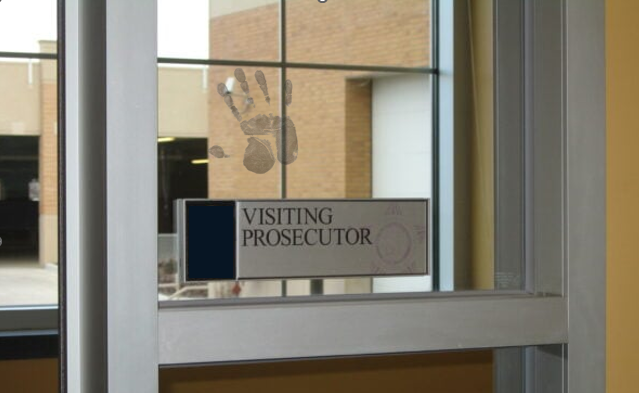
Every word she spoke was made to sound rehearsed or unreliable. She was too composed, or not composed enough. Too emotional, or too cold. There was no way to be innocent in a place that had already decided she was guilty before the gavel ever fell. I hovered above it all, hopelessly searching for someone to do something.
But the jury's faces stayed blank, their eyes tired. They wanted to go home, to put the villain in her place, to become the heroes, to close the book.

When the verdict came, the only surprise was how unsurprised everyone seemed. The gavel fell, taking with it whatever was left of my mother's hope. At that moment, I swear I heard the monster who took me without mercy, laugh and breathe a sigh of relief as the courtroom erupted in cheers.
The last thing I saw was my mom, glancing back in disbelief at the prosecutor. Their eyes met—just for a split second. He instantly looked away, as if his certainty had splintered, giving way to doubt. A shiver ran through him. His blood ran cold, as though the truth passed straight through him: indignant, unforgiving—and too late for redemption.
The only truth was this: unable to find the real monster, they created the illusion of one—and everyone bought into it. As they took her away, I felt my presence begin to fade.
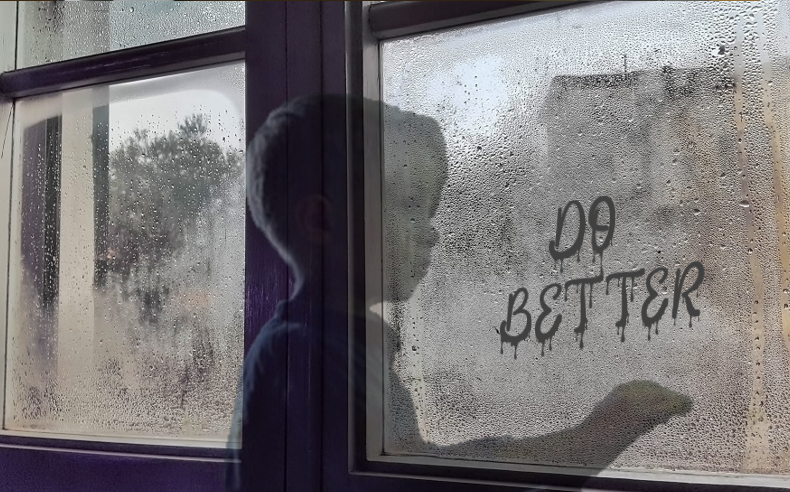
I wanted desperately to scream, but all I could do was whisper my final plea: "Next time, I pray you get it right. For the next mother. For the next child. For all the future victims of all the monsters out there, please, dear God—let them do better."
